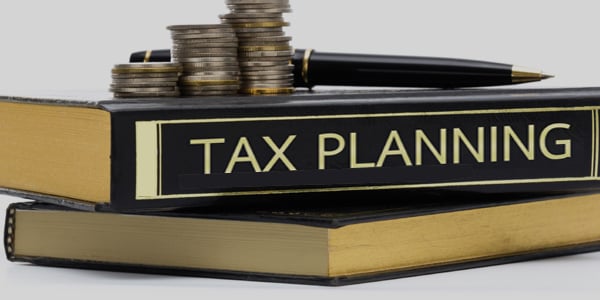
20:06 PM, 7th February 2019, About 5 years ago
Text Size
Two of my former Tax Planning Consultation clients (Steve and Debbie) sent me the following email this week and have since asked me to share it, together with my response, with all Property118 members.
“Hi Mark
My accountants have suggested that if we pay ourselves a small salary we will actually pay less tax. He did explain it to us but we don’t understand. Can you help us by explaining it in a way we can understand please? For background, you helped us to incorporate our property rental business last year and to to restructure in a way that gave us a £400,000 Directors Loan to drawn upon tax free. This month we will be filing the first set of accounts for the Company financial year end. Our plan was just to use treat the £100,000 we have taken out of the company as repayments of the Directors Loan, which will be tax free anyway. So how can we pay less tax than none at all? We confirm that you and our accountant have our permission to discuss our financial affairs openly and we have cc’d you both into this email.
Thanks in advance.
Steve & Debbie”
My response ….
Dear Steve and Debbie
I have spoken to your accountant and his advice to you was spot on!
The £100,000 you have withdrawn from the company was mainly from the net sale proceeds of the two properties sold. However, the company also made £100,000 of rental profits, which it will pay 19% corporation tax on – that’s £19,000 of corporation tax your company will pay.
You are absolutely right in saying that you would not pay income tax on the £100,000 you have withdrawn from the company if you treat it as a Directors loan. However, if you take £76,300 as a Directors loan repayment and £11,850 each as a salary, that still adds up to £100,000. You can each earn up to £11,850 without paying tax.
It’s not your tax bill that will reduce if you do this, it is the corporation tax bill of the company. This is because the salaries you will take are treated as a company expense. On that basis, the £100,000 of profit the company would have made, if it didn’t pay the salaries, would reduce to just £76,300. On that basis, the company corporation tax bill would reduce from £19,000 on £100,000 of profit to just £14,497 on £76,300 of profit. That’s a tax saving for the company of £4,503. There will be a bit of National Insurance to pay, but nowhere near as much as the corporation tax saving. Also, paying your National Insurance dues is actually a good thing because it preserves your old age pension rights.
That’s not quite where the good news ends though. You can also declare a dividend of £2,000 each and pay no tax on that either. If you want to preserve your Directors Loan Account balances for a ‘rainy day’ you could also declare a higher dividend. For example, if you were to declare a dividend of £32,000 each to take your taxable incomes up to £43,850 each then you would pay just 7.5% dividend tax on the extra £32,000. That’s a commercial decision for you to take, but I would strongly recommend it.
There are two other points you need to bear in mind. As a result of incorporating, you paid no CGT on at all on the properties you sold. That savings alone is more than it cost you to incorporate your business. The second things is that you were not affected by the Section 25 restrictions on finance cost relief. If you had stayed as you were, you would have paid additional tax of £10,000 on your £50,000 of disallowed finance costs and the Section 24 restrictions on finance cost relief would have continued to eat away into your income.
I hope that helps to explain why your accountant has advised you to pay yourself salaries. I have to say, you have chosen a very good accountant who clearly has your best interests at heart. stick with him, he’s one of the good ones and clearly knows his stuff.
All the best
Mark Alexander
I would like to take this opportunity to thank Steve and Debbie for asking me to share this email exchange for the benefit of other Property118 members who may be in a similar position. This is very much in the spirit of why I created Property118 in the first place “to facilitate the sharing of best practice within the UK Private Rented Sector”
Show Book a Tax Planning Consultation
Previous Article
Bank Rate held at 0.75% amid reduced growth forecast